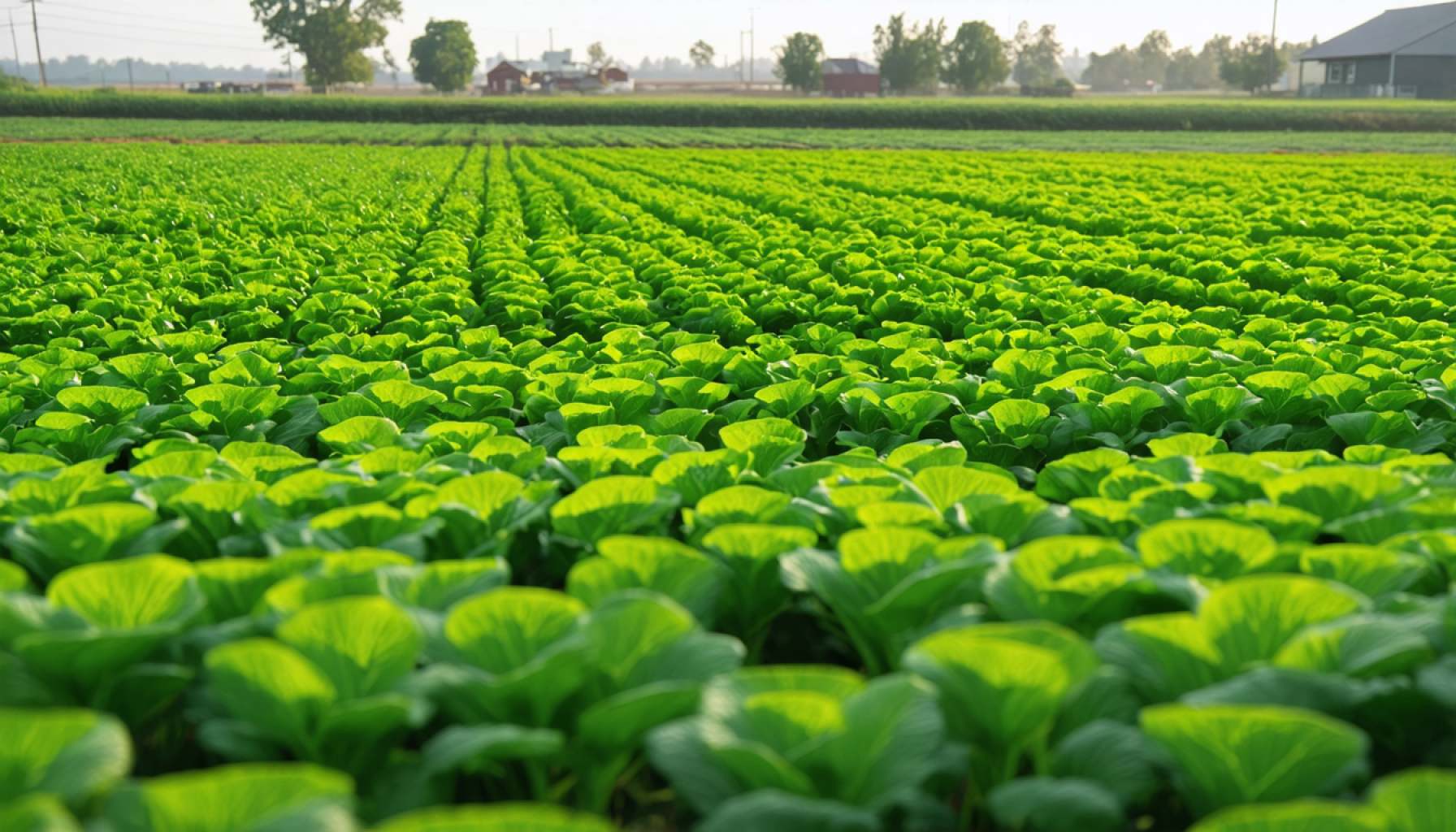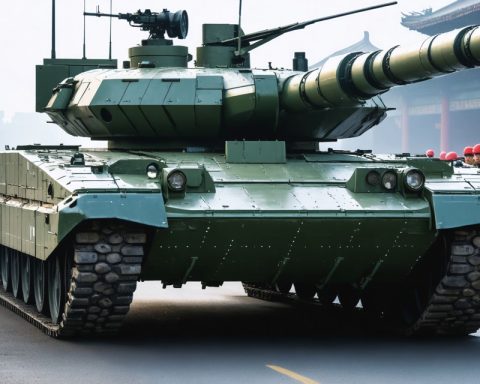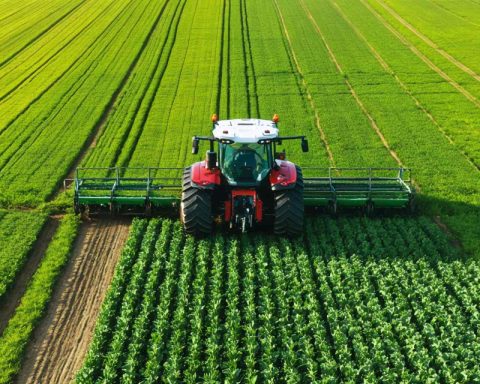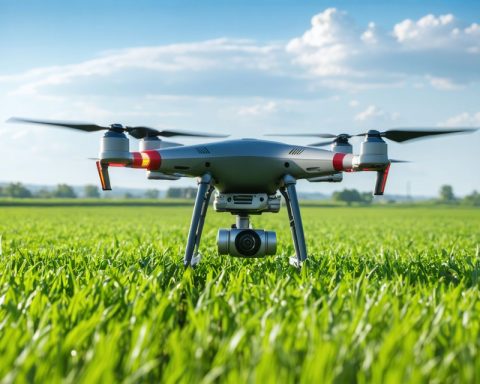- FarmSmarter, developed by a team from LSU, is revolutionizing agriculture with AI-driven technology, enhancing farming efficiency and sustainability.
- The app provides tailored advice by analyzing farm data, helping farmers manage crops effectively while reducing reliance on traditional methods.
- FarmSmarter has garnered recognition at major entrepreneurial competitions, reflecting its impact and potential in modern agriculture.
- Future enhancements will include advanced tools such as soil analysis and historical data tracking, allowing for predictive farming strategies.
- This initiative marks a significant shift towards integrating technology into agriculture, blurring the lines between rural and urban tech innovation.
Sleek skyscrapers and bustling tech conferences might seem worlds apart from the gentle rustle of cornfields, yet a revolution is quietly unfurling amidst those rows of crops. In an era where artificial intelligence (AI) shapes our cities and societies, agriculture—the backbone of sustenance—has found an unexpected ally in cutting-edge technology. Enter FarmSmarter, an innovative leap led by a group of visionaries from Louisiana State University (LSU).
FarmSmarter isn’t just a name; it’s a manifesto for modernizing traditions. Created by a team including Colin Raby, an insightful LSU alumnus, and Grant Muslow, a keen LSU graduate student, this AI-powered assistant promises transformation in the fields. Alongside biological engineering student Julius Pallotta and alumnus Cole Lacombe, they have sculpted a digital assistant that feels more like a seasoned agriculturalist.
This virtual guide doesn’t merely identify plants or pinpoint invasive insects; it redefines the experience of farming. Imagine sending a snapshot of a beleaguered leaf through an app and receiving tailored advice just as meticulous as if Raby himself were elbow-deep in the soil beside you. It transcends traditional agricultural consultations that often rely on dusty booklets or sponsored solutions from entrenched chemical companies. FarmSmarter is hunting efficiencies, aiming to save precious time and hard-earned dollars for farmers seeking high-quality answers.
Since its debut in February, FarmSmarter’s presence extends beyond the fields to the competitive corridors of entrepreneurial acclaim. Celebrated at the 2024 J Terrell Brown Venture Challenge at LSU, marked as a finalist at Baylor’s New Venture Competition, and recently contending at the Louisiana Pelican Cup, the startup is a testament to the innovative spirit infusing modern agriculture. Its upcoming presentations at the Arkansas Governor’s Cup and the Rice Business Plan Competition in Houston will be pivotal moments, sure to captivate judges eager to support technology that melds seamlessly with sustainability.
Yet, what’s most compelling about FarmSmarter isn’t just its early accolades but its visionary horizon. As the team eye future investments, ambitions include introducing sophisticated tools like a soil analysis feature and a historical data tracker. These enhancements promise to elevate the art of farming from reactive to predictive, allowing growers to trace performance trends and optimize yields historically.
In this digital age, FarmSmarter heralds a new era where rural fields might just wield as much tech clout as urban tech hubs. It’s an era where agriculture doesn’t play catch-up with technology but partners with it, crafting a future that respects tradition yet embraces innovation. This synergy echoes a clear message: the farm of tomorrow is not on the horizon—it’s here, and it’s smarter than ever.
The Future of Farming: How FarmSmarter is Transforming Agriculture
Introduction
In today’s rapidly evolving world, technology is reshaping every aspect of life, including agriculture. FarmSmarter, an innovative tool developed by visionaries from Louisiana State University, is at the forefront of this transformation. This AI-powered assistant is revolutionizing how farmers manage their crops and resources, blending traditional agriculture with cutting-edge technology. This article explores the depth of FarmSmarter’s innovations, its potential impact on the agriculture industry, and what the future holds.
The Rise of AI in Agriculture
FarmSmarter isn’t just another agricultural app; it’s a testament to the power of AI in optimizing farm operations. This digital assistant provides precise solutions for identifying plant health issues and managing invasive species. By leveraging AI, FarmSmarter delivers detailed and personalized advice, thus saving farmers time and money.
How FarmSmarter Works
1. Image Recognition: Farmers can take photos of their crops to identify issues such as diseases or pests.
2. Tailored Advice: The app provides specific recommendations based on analyzed data.
3. Efficiency Optimization: Users receive efficient solutions for real-time problems, enhancing crop yields and reducing waste.
Real-World Applications
FarmSmarter is not just a theoretical concept; it’s a practical solution making a tangible impact.
– Case Study: By using FarmSmarter, a mid-sized corn farm in Louisiana reported a 20% increase in yield due to early pest detection and timely interventions.
– Environmental Impact: By optimizing resources, FarmSmarter helps reduce the amount of pesticides and fertilizers needed, promoting sustainable farming practices.
Industry Trends and Market Forecasts
AI in agriculture is a booming sector, expected to grow significantly in the coming years. According to recent studies, the global AI in agriculture market size is projected to reach $4 billion by 2026, driven by increasing demand for efficiency and sustainability.
– Trend: The integration of AI with IoT (Internet of Things) is creating smart farming systems, leading to precision agriculture.
– Forecast: As technology advances, more farms are expected to adopt AI solutions like FarmSmarter, moving towards a data-driven approach.
Controversies and Limitations
Like any innovation, the adoption of AI in agriculture faces certain challenges:
– Data Privacy: Concerns about data security and the privacy of farm information must be addressed.
– Initial Costs: The initial investment required to integrate AI technology can be a barrier for small-scale farmers.
Future Enhancements and Roadmap
FarmSmarter’s team is continuously innovating, with plans to add features like:
– Soil Analysis: Advanced tools to analyze soil health and provide recommendations for fertilization.
– Historical Data Tracking: Enables farmers to predict trends and optimize future planting seasons.
Conclusion and Actionable Tips
FarmSmarter is poised to become an indispensable tool for modern farmers, blending tradition with technology. Here are quick tips for farmers eager to harness this innovation:
– Start Small: Begin integrating AI tools like FarmSmarter on a small section of your farm to assess its impact.
– Educate Yourself: Attend workshops and training sessions to fully understand AI technology in agriculture.
– Collaborate: Partner with other farmers and agricultural experts to share insights and maximize the tool’s benefits.
For more information on sustainable farming technologies, visit the Louisiana State University website.
FarmSmarter exemplifies a future where agriculture and technology grow hand in hand, promising smarter, more sustainable farming for generations to come.

















